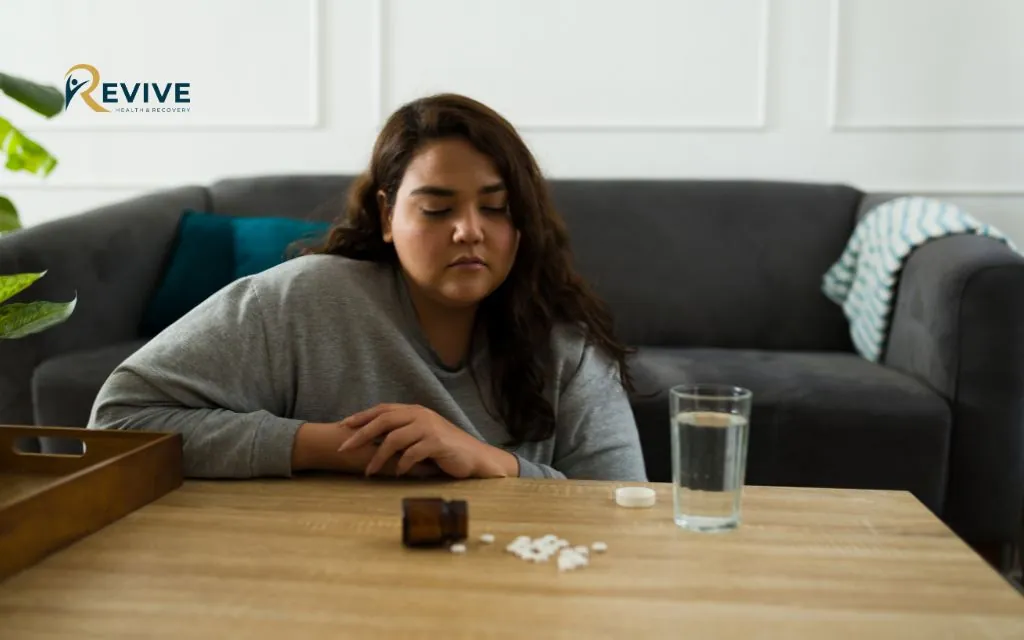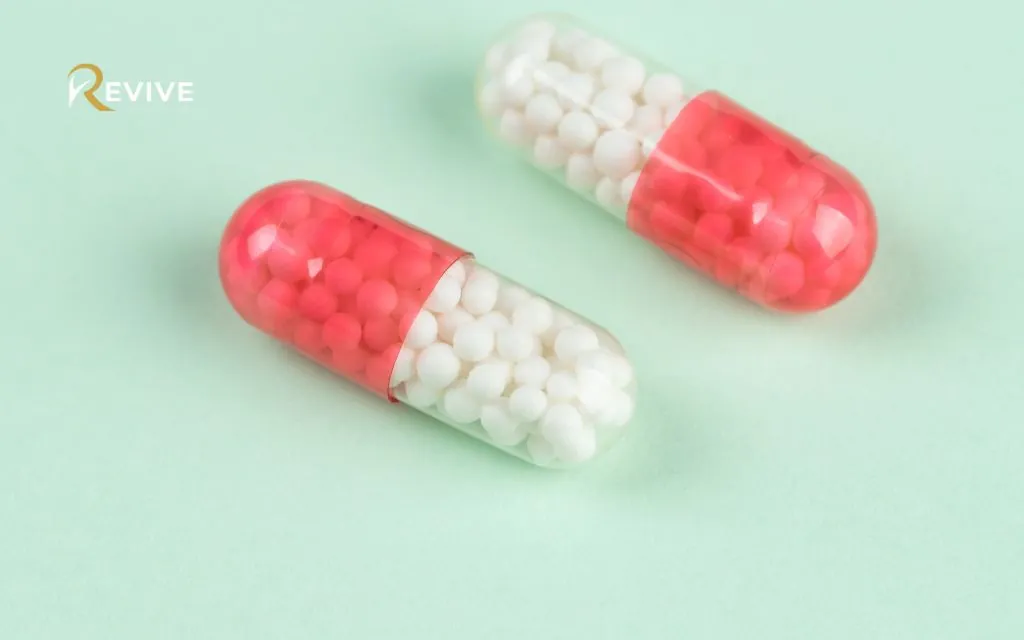Substance abuse affects individuals and families in profound ways, but with the right support, recovery is possible. At Revive Health Recovery, we specialize in comprehensive substance abuse treatment Denver, offering expert care for both mental health and addiction. Our programs, including dual diagnosis treatment, address the root causes of substance use and provide personalized solutions for lasting recovery. This guide explores symptoms, causes, and effective treatments to help you or a loved one take the first step toward healing.
General Information About Substance Abuse Treatment Denver
What Is Substance Abuse?
Substance abuse, often referred to as drug abuse, occurs when a person uses drugs, alcohol, or other substances in ways that are harmful to their health, well-being, or relationships. This misuse can lead to addiction, a condition where the individual becomes dependent on the substance despite negative consequences.
Substances like alcohol, prescription medications, and illegal drugs can have serious physical, psychological, and social impacts when abused. Overdosing on these substances can cause life-threatening health complications. Substance abuse can also lead to legal issues, strained relationships, and challenges in daily life, making it a significant issue for individuals and their communities.
At its core, substance abuse is not just a personal struggle—it’s a condition that affects all aspects of life. Understanding it is the first step toward seeking effective substance abuse treatment Denver and beginning a journey to recovery.
Common Symptoms
Substance abuse often shows physical, emotional, and behavioral signs. Recognizing these symptoms is key to seeking effective substance abuse treatment Denver.
Common symptoms include:
- Loss of control over substance use.
- Needing larger doses for the same effect.
- Withdrawal symptoms when not using.
- Risky behaviors, like driving under the influence.
- Neglecting responsibilities and social isolation.
- Continued use despite harmful consequences.
It’s important to remember that not everyone experiences the same symptoms, and substance abuse can manifest differently for each person.

What are the signs and symptoms of substance abuse in adults?
Substance abuse in adults can manifest through physical, behavioral, psychological, and performance-related symptoms. Recognizing these signs is essential for seeking effective substance abuse treatment Denver and starting the journey to recovery.
Physical Signs
- Bloodshot eyes: Often accompanied by constricted pupils (from opioids) or dilated pupils (from stimulants).
- Sudden weight changes: Rapid weight loss due to appetite suppression from stimulants like cocaine or methamphetamine.
- Sleep disturbances: Insomnia or hypersomnia, depending on the substance.
- Poor hygiene: Neglecting basic grooming and cleanliness.
- Skin changes: Acne, scabs, bruises, or track marks may appear.
Behavioral Changes
- Secretive behavior: Withdrawal from family and friends, avoiding social interaction.
- Ignoring responsibilities: Neglecting work, school, or household duties.
- Financial strain: Borrowing money frequently or selling belongings to afford substances.
Psychological Symptoms
- Mood swings and irritability: Sudden anger or emotional outbursts.
- Depression or anxiety: Loss of interest in activities and feelings of hopelessness.
- Low self-esteem: Demonstrating a lack of confidence or motivation.
Performance Issues
- Absenteeism: Missing work or being unproductive due to hangovers or withdrawal.
- Poor decision-making: Struggling to focus or prioritize responsibilities.
- Conflict and theft: Increased workplace conflicts or stealing to fund substance use.
Sex and Gender Differences
Substance abuse symptoms may vary between men and women. Men might experience fertility issues or use substances to enhance positive moods, while women may face hormonal imbalances, panic attacks, or dramatic weight loss depending on the drug.
Recognizing these signs is crucial for addressing the issue early. If you or someone you know exhibits these symptoms, seeking help from Revive Health Recovery can provide the support and solutions needed for recovery.
Causes of Substance Abuse Treatment Denver
Substance abuse in adults is a complex condition influenced by various factors, including psychological, social, and environmental elements. Understanding the causes and risks is essential for prevention and seeking effective substance abuse treatment Denver.
What causes substance abuse in adults?
Substance abuse often begins with exposure to addictive substances such as alcohol, tobacco, or drugs. These substances can be particularly harmful when used to cope with stress, pain, or emotional challenges.
- Relationship Challenges: Difficulties within the family, such as lack of parental attention, neglect, or growing up in a household with substance abuse, can increase the likelihood of developing similar habits.
- Social Pressures: Many people turn to substances to fit in, avoid feelings of isolation, or gain social acceptance. However, this can create dependency and reduce overall social skills.
- Coping Mechanisms: Life challenges, such as a breakup, loss of a loved one, or traumatic experiences, can push individuals toward substance use as a way to escape emotional pain.
Substance abuse often starts as a temporary solution to these problems but can quickly spiral into addiction.

Who is most likely to suffer from substance abuse in adults?
While anyone can be affected by substance abuse, certain factors increase the risk:
- Social Environment: Being surrounded by others who use drugs or alcohol can normalize the behavior and increase exposure.
- Psychological Struggles: Individuals dealing with unresolved trauma, depression, or anxiety are more prone to substance use as a form of self-medication.
- Long-Term Use: Prolonged exposure to drugs or alcohol significantly raises the risk of dependency and addiction.
Understanding these risks helps identify those who may need early intervention or support.
When should you see a doctor?
If you or a loved one displays signs of substance abuse, it’s essential to consult a healthcare professional. Symptoms such as persistent cravings, withdrawal symptoms, or significant lifestyle disruptions are clear indicators that help is needed.
Everyone’s situation is unique, so speaking with a doctor can provide tailored advice and determine the best course of action. Seeking assistance early through trusted programs like Revive Health Recovery can make a significant difference in achieving lasting recovery.
Drug And Substance Use In Adolescents
Substance use among adolescents is a growing concern, with common substances like alcohol, tobacco, e-cigarettes, and marijuana often misused. Early recognition and intervention are crucial for preventing long-term dependency and ensuring a healthier future.
Specific List Of Typical Substances Of Abuse
Alcohol
Alcohol is the most widely used substance among adolescents. Many teens experiment with alcohol due to peer pressure or societal influences, often leading to binge drinking. This behavior increases the risk of accidents, injuries, and long-term dependency.
Tobacco
Smoking often begins in adolescence, with parental smoking being a significant risk factor. Although traditional cigarette use has declined, adolescents may still experiment with smokeless tobacco products or cigars, which carry similar risks.

E-cigarette products (vaping products)
Vaping has become increasingly popular among teens due to its accessibility and appealing flavors. However, vaping nicotine or THC poses significant risks, including addiction and lung injuries.
Marijuana
Marijuana is one of the most frequently used substances by teens. THC vaping is particularly concerning due to its potency and potential for addiction.
Other stimulants
While less common, stimulants like prescription medications, methamphetamines, and synthetic drugs are also misused by some adolescents, leading to severe health and behavioral issues.
Drug and Substance Use Treatment for Adolescents
Treating substance use in adolescents requires a tailored approach that considers their developmental stage and unique needs. Common treatment methods include:
- Therapy: Cognitive Behavioral Therapy (CBT) and family therapy help teens understand the impact of their substance use and develop healthier coping strategies.
- Education: Teaching adolescents about the risks of substance use and building skills to resist peer pressure.
- Support Groups: Peer-based programs create a supportive community for teens to share experiences and encourage recovery.
- Medication-Assisted Treatment: When necessary, medications can help manage withdrawal symptoms or reduce cravings, especially for substances like nicotine or opioids.
At Revive Health Recovery, our substance abuse treatment Denver program for adolescents combines evidence-based practices, family involvement, and holistic care to address substance use and empower teens toward lasting recovery. Early intervention can make all the difference in helping adolescents regain control and build a healthier future.
Effective Treatment of Substance Abuse
What medical techniques are used to diagnose substance abuse in adults?
Doctors diagnose substance abuse by using criteria outlined in the Diagnostic and Statistical Manual of Mental Disorders (DSM-5). The evaluation includes a detailed assessment of the patient’s substance use patterns, physical health, mental health, and any behavioral changes. A thorough medical history and interviews help identify co-occurring disorders, such as depression or anxiety, which are often linked to substance abuse.
Lab tests may also be used to detect substances in the bloodstream or evaluate organ damage caused by prolonged substance use. These techniques ensure an accurate diagnosis, enabling doctors to design an effective treatment plan tailored to the individual.
What methods are used to treat substance abuse in adults?
Treating substance abuse often involves a combination of medical intervention, therapy, and lifestyle changes. Common methods include:
- Medication-Assisted Treatment (MAT): Medications like naltrexone, buprenorphine, or methadone are used to manage cravings and withdrawal symptoms. These medications are particularly effective for opioid or alcohol dependence.
- Therapy: Cognitive Behavioral Therapy (CBT) helps patients identify and change harmful thought patterns that lead to substance use. Dialectical Behavior Therapy (DBT) can also help manage intense emotions. Family therapy and group counseling foster support and accountability.
- Detoxification: Under medical supervision, detox helps the body safely eliminate substances while managing withdrawal symptoms.
- Dual Diagnosis Treatment: Many individuals with substance abuse disorders also struggle with mental health conditions. Treating both simultaneously is crucial for lasting recovery.

Building a Healthier Lifestyle
Lifestyle changes play a key role in preventing relapse and supporting long-term recovery. These include:
- Maintaining a balanced diet and regular exercise.
- Avoiding alcohol and smoking.
- Managing stress through mindfulness or relaxation techniques.
- Staying connected with family, friends, and support groups.
- Establishing a structured daily routine.
Approaching a loved one about their substance use can be challenging. Focus on expressing concern for their health without using labels like “addict” or “alcoholic.” Be empathetic, understanding, and offer options for seeking professional help.
Revive Health Recovery: Best Substance Abuse Treatment Denver
Comprehensive Treatment for Substance Abuse
At Revive, we combine evidence-based therapies, like Cognitive Behavioral Therapy (CBT) and Dialectical Behavior Therapy (DBT), with holistic approaches to address substance use disorders. Our services include detox support, group therapy, one-on-one counseling, and skills development, all guided by licensed professionals who are passionate about your success.
Every treatment plan is designed around your specific situation, ensuring that you receive the care and tools you need for long-term recovery. Whether you’re seeking help for yourself or a loved one, Revive Health Recovery is here to make your journey to wellness as smooth and empowering as possible.
Why Choose Revive Health Recovery?
At Revive Health Recovery, we are committed to providing top-notch substance abuse treatment Denver, offering personalized care to meet each individual’s unique needs. Our experienced team specializes in creating tailored treatment plans that address the root causes of substance use, ensuring comprehensive and effective support.
Our clinic stands out for its focus on small group settings, compassionate care, and flexible options, including in-person and virtual programs. Whether you need help with co-occurring mental health disorders or substance use challenges, Revive provides a safe, supportive environment to guide you toward lasting recovery.
Conclusion
Substance abuse is a complex challenge, but effective treatment is within reach. By understanding the symptoms, causes, and solutions, you can make informed decisions about recovery. At Revive Health Recovery, we are committed to providing compassionate and expert care for substance abuse treatment Denver, including dual diagnosis programs and tailored therapies. Contact us today to start your journey toward a healthier, more fulfilling life.



